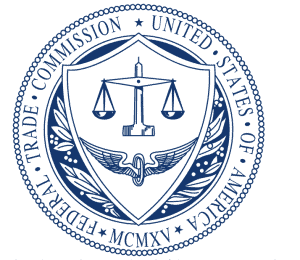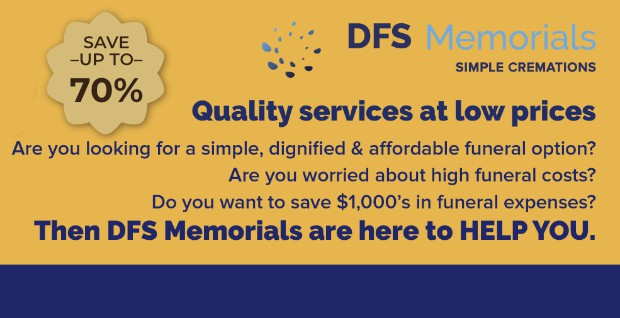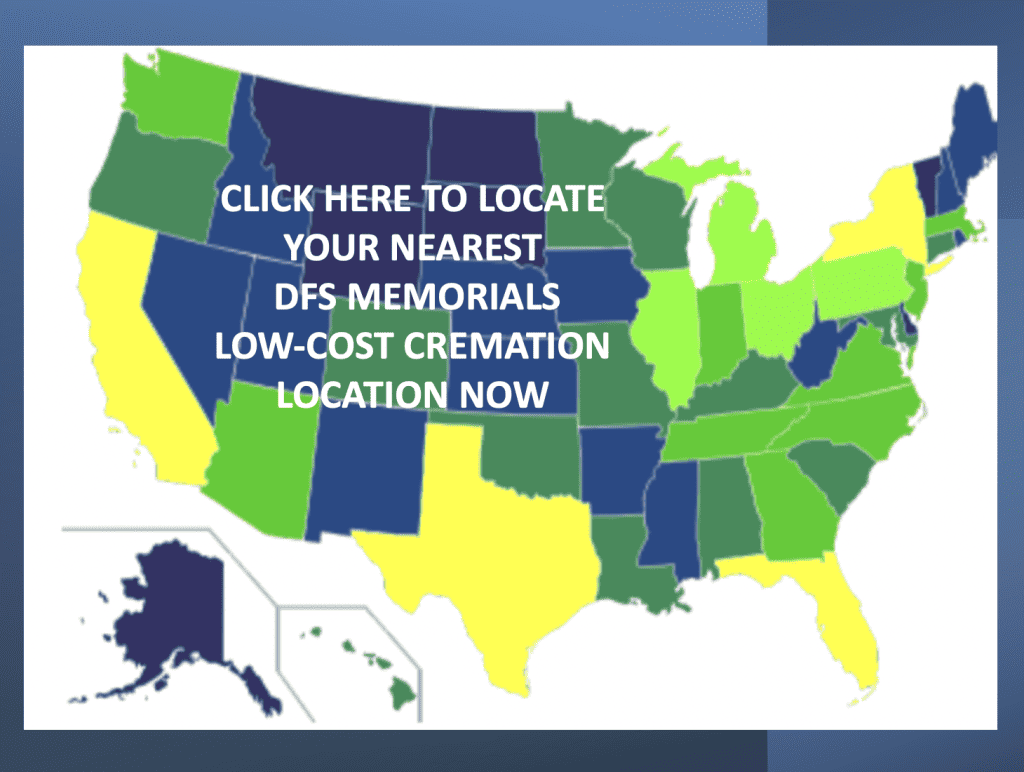The Funeral Rule is currently under review by the FTC. In November 2022, an Advance Notice of Proposed Rulemaking was announced, inviting the public to comment on proposed changes and updates to the long-standing Rule.
Who are the FTC?

The Federal Trade Commission is a government agency established to enforce antitrust and consumer protection laws across various commerce sectors. The FTC investigates and prevents any unfair methods of competition or unfair and deceptive practices that affect consumers.
What is the Funeral Rule?
The Funeral Rule has stood (largely unchanged) for almost 40 years. The Rule was introduced in 1984 to ensure funeral consumers should have access to vital information to make informed purchasing decisions.
Purchasing funeral services is like no other type of purchase, as it can be complicated by the fact that families are often making significant financial decisions when struggling with grief and emotional stress.
The Rule specifically prohibits funeral homes from telling consumers that embalming is required by law. Which it is NOT. And it requires funeral homes to be clear about pricing for funeral services and products.
For many decades, it was common for funeral homes not to disclose funeral pricing information openly. And for families to not even ask ‘how much’? This resulted in some families being overwhelmed with unexpected funeral costs.
So, the Rule was introduced to declare that funeral consumers had the right to have prices disclosed to them on request. This brought about the requirement for such things as a General Price List (GPL) and Casket Price List (CPL) to be established as a clear guide to a funeral home’s services and products.
Albeit all funeral homes should now have a definitive GPL and CPL, many do not provide access to them on their website. Even requesting a GPL from a funeral home can sometimes be difficult. They tend to be reluctant to disclose set prices and prefer to suggest a funeral director (AKA Funeral Sales Person) call you back to discuss your “needs.”

See the Table Below for the Definition of the Funeral Rule and Funeral Services.
Why is the FTC considering updating the Funeral Rule?
One of the main concerns in reviewing the Funeral Rule is technology. With almost 87% of adult Americans online these days, how we access information has changed fundamentally in the last 40 years.
The original ruling does not mention accessing funeral prices via the Internet, email, or text. Nor does it make reference to the huge changes in advertising mediums, such as Google and Social Media.

Between June and September 2021, FTC staff surveyed funeral home websites from across the United States. What were their findings?
Funeral Homes Still Avoid Giving Funeral Prices Online.
The survey found that nearly 60% of funeral home websites had no online pricing information.
In our era of online price comparison shopping and pricing information transparency – this is an industry’s staggering failure to provide open pricing disclosure to online consumers.
Would you book a flight without being told the price? Or buy a new car without comparing dealership offers?
The fact that a majority percent of funeral home business websites avoid displaying their prices online is shocking. Especially when they are required by the Funeral Rule to have a General Price List and knowingly make it available to families asking about funeral costs.
But Funeral Homes Seem to Love Facebook.
Funeral homes do seem to have embraced Social Media, though. This is interesting, as it is such a different medium for engaging with potential client families. I cannot help but wonder what true value they get from a social media strategy.
The survey found that an incredible 90% of funeral homes surveyed had a Facebook page.
They actively linked to their website and sometimes used Facebook to live stream funeral services. I can appreciate the value of live-streaming funeral services and enabling families to share via their Facebook connections. But, this seems more of an ‘after sale’ kind of approach to an online presence. Rarely have I seen a funeral home Facebook page promoting their services with a price-focused disclosure approach.
The survey concluded that, in most instances, there was insufficient information online for a website visitor to determine funeral prices effectively. Meaning that a potential funeral consumer would most likely need to contact the funeral home directly to obtain clear pricing information.
Read the FTC Report Shopping for Funeral Services Online for a full statistical review of the findings.
What specific topics are under review to update the Rule?
| TOPIC AREAS FOR REVIEW | CONSIDERATIONS |
| Online or Electronic Disclosures of Price Information | Whether funeral pricing information should be made better available via funeral home websites and other electronic means such as email and SMS. |
| New Forms of Disposition of Human Remains | Many States do not yet have clear funeral licensing regulations pertaining to new forms of disposition. Such as alkaline Hydrolysis (water cremation) and Human Composting or Natural Organic Reduction (NOR). |
| The General Price List as Mandated | A Review of what is required as mandatory service charges to be included in the GPL. |
| Disclosures Mandated – Including Embalming | A review of disclosures that were originally considered mandatory – such as disclosing that embalming is NOT legally required. |
| Third-Party Crematory Fees & Other Third-Party Fees | For 40 years, most funeral homes have only been required to provide a GPL in English. Some do offer their GPL in other languages, especially if there is a specific need in their community. But, should there be a mandate to offer the GPL in more than one language? |
| Requirement to Provide GPLs in Languages Other Than English | With the increase in cremation, whether third-party crematory fees should be included in a quoted cremation price. Should other third-party fees be better disclosed and/or included in funeral prices? |
What will this mean for Funeral Consumers?
During the FTC preliminary assessment period, the general consensus was that the Funeral Rule should continue to protect funeral consumers. It is clear that it needs a serious review to bring it into the changing era of new funeral alternatives and technological communication advances.
This should mean improved access to funeral pricing for funeral consumers. Especially if the Rule is adapted to enforce funeral homes with websites to be required by mandate to disclose prices online.
A review of the inclusion of third-party crematory fees (and other add-on third-party fees), could also make navigating a total funeral price much simpler for funeral consumers.
Ultimately, the clarity and access to clear pricing information have historically been the main failing of funeral homes.
Funeral Price Disclosure & Why DFS Memorials was Established in 2012
Here at US Funerals Online, we advocate for funeral consumers and their right to clear and accessible price disclosure. Around 2010, we noticed a significant increase in website visitors who were searching for funeral price information. And oftentimes, specifically, HOW to find “cheaper” funeral options.

As a more affordable alternative, demand for cremation was increasing. Yet, fewer funeral homes disclosed prices or even had websites back then. Many in the funeral industry hoped cremation was just a ‘fad’ and families would eventually return to traditional funerals.
That was NOT the case, and last year, the cremation rate hit almost 60%, with a forecast that by 2035, the cremation rate will reach 80%.
We established DFS Memorials LLC to help funeral consumers find what they needed and wanted….affordable funeral alternatives. With full disclosure of prices online. We networked with like-minded funeral professionals and built a network that rivals no other in helping families find quick and easy access to local, affordable services.
We DID meet resistance. Largely from the ‘Institutional’ sector of the industry. Those who hated the notion of price disclosure. The Neptune Society served us a ‘Cease & Desist’ for sharing and disclosing cremation price comparisons.
Over the years, we have experienced numerous ‘complaints’ – mainly originating from funeral homes unhappy with our open price disclosure and willingness of our network to challenge price-fixing and anti-competitiveness in an area. Not ONE complaint has ever stood its ground.
DFS Memorials follows the rules but delivers what funeral consumers want, need, and demand……transparency, clarity, fairness, and affordability.
How will the Proposed Funeral Rule Review affect Funeral Homes?
60% of funeral homes currently fail to disclose prices online on their websites, which drives consumers to HAVE to contact the funeral home directly. Mandating full-price disclosure online will be a huge ‘culture shock’ for many funeral homes.
Some may consider allowing consumers to view their services and pricing without any interaction is disempowering. It will require ‘re-training’ in how to foster interaction, trust, and confidence remotely.
Funeral providers that presently opt to use a third-party crematory and not disclose this in their cremation package price will be required to change how they present their ‘total’ cremation price.
I hope that considering new human remains disposition alternatives will encourage more State Licensing Boards to adapt and update their archaic funeral legislation to reflect the changing death care landscape. This would allow more progressive funeral service providers to consider providing these alternatives to their communities.
Final Thoughts…….
The likes of Service Corporation International (the largest death care corporation) have deep pockets, and some ‘lobbying’ may delay or adjust how the FTC Funeral Rule Review is completed. With the death care industry valued at $20 Billion and 2.4 Million funerals a year in the U.S., there is a lot of revenue at stake here.
THE FUNERAL RULE – KEY TENETS
| Key Funeral Rules | Requirements |
| General Price List | A funeral home must make reference to any state or local legislation that requires a consumer to purchase a specific item. |
| Disclosures | Disclosures should be provided to consumers concerning embalming, casket for direct cremation, outer burial container, any cemetery requirements pertaining to protective vault claims, cash advance items, and any other potential ‘misrepresentations.’ |
| State/Local Laws | A funeral home must make reference to any state or local legislation that requires a consumer to purchase a specific item. |
| Embalming | A funeral home should not imply that embalming is required by law. Unless a specific exception applies. |
| Cremation Container | A funeral home cannot claim that a casket is required for a direct cremation. A funeral home offering cremation must offer an affordable unfinished wood box or alternative container (most often reinforced cardboard), that the deceased can be cremated in. |
| Caskets | A funeral home selling a casket selection must have a Casket Price List (CPL). The CPL must be provided to a consumer before viewing the casket selection. A funeral home cannot claim that a casket must be purchased from them and must accept any casket purchased by the consumer and delivered to them. Without charging a handling fee. |
| Type of Funeral Service | Definition |
| Traditional Full-Service Funeral | Full-Service Funeral, which includes a viewing or visitation and a formal funeral service. Usually held at the funeral home. The deceased is then transported to the cemetery or crematory for interment or cremation. |
| Immediate Burial | Burial that occurs shortly after death with no viewing or visitation, and usually with a simple burial container. Embalming is not necessary or required. |
| Direct Cremation | Cremation that occurs shortly after the death with no viewing or visitation. Embalming is not required or necessary. |



